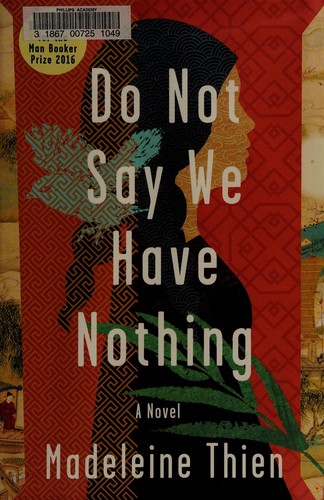NatsumeSoseji reviewed Do not say we have nothing by Madeleine Thien
Amazing
5 stars
Do not say we have nothing is about the lives and fates of members of two families through the tumultuous history of post-war communist China, covering four time periods: The Land Reform movement, the cultural revolution, the Tiananmen protests, and present day. On one hand, it tells a story of family, love, passion and personal struggles, about people trying to live a life and devoting their all to music and the people they love. On the other hand, the book tells a story about repeating cycles of violence and turmoil in a restless society. We see the inescapability of violence under an authoritarian government, a society that turns on itself periodically to denounce and purge all that sticks out too much, and societal values and norms changing from one day to the next, turning the heroes from yesterday into the traitors of today. Things of value to people and to society are destroyed in the heat of the moment, and memories of the past questioned or erased. You increasingly feel like the bonds of society and what has fundamentally defined it in the past, is being broken and reshaped and rebroken and reshaped repeatedly, until nobody remembers what was normal yesterday. The characters retreat emotionally, afraid of having their innermost emotions and beliefs taken away, until they are unable to do the things they hold most dearly.
While reading I felt myself getting pulled forward through the story and down the pages by the strength of the words. It takes a talented writer to evoke strong feelings in the reader, and Madeleine Thien manages to do so with a remarkable lightness and eloquence. I enjoyed this book a lot.

